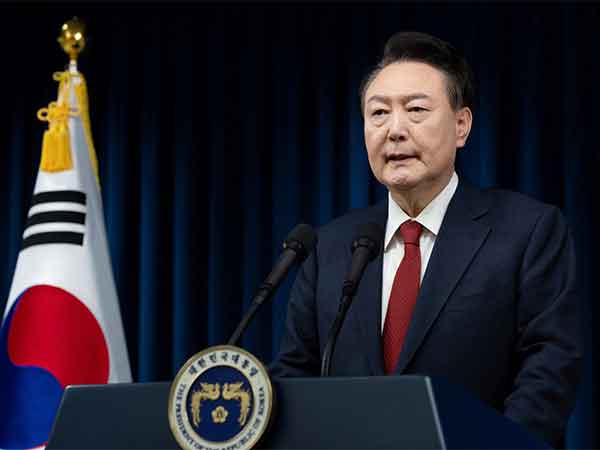Historic Impeachment: South Korean President Ousted Over Martial Law Controversy
South Korea's Constitutional Court has removed President Yoon Suk Yeol following his impeachment over a martial law decree. The decision, stemming from Yoon's controversial actions, mandates a snap presidential election within 60 days. The ruling sends a strong message against abuses of power, supporting constitutional integrity.

- Country:
- South Korea
In a landmark decision, South Korea's Constitutional Court has ousted President Yoon Suk Yeol from office after upholding his impeachment over a contentious martial law decree issued last December, as reported by Yonhap News Agency. This unprecedented ruling, delivered by acting court chief Moon Hyung-bae, takes immediate effect, setting the stage for a snap presidential election anticipated on June 3.
President Yoon's downfall began with his controversial declaration of martial law on December 3, which involved deploying troops to the National Assembly to prevent lawmakers from voting against the decree. His subsequent order for the arrest of politicians sparked widespread outrage and accusations of power abuse, according to Yonhap News Agency. The impeachment, driven by an opposition-controlled National Assembly, cited constitutional and legal violations. The Constitutional Court's unanimous verdict affirms that Yoon's actions significantly disrupted the country's constitutional framework.
Moon underscored the gravity of Yoon's violations, stating that the negative effects on the constitutional order were severe. According to Yonhap News Agency, the court acknowledged all charges against Yoon, highlighting his failure to meet the legal prerequisites for declaring martial law and his maneuver to impede the Assembly's decree reversal. Responding to the ruling, the People Power Party conceded, accepting the court's decision, while the main opposition Democratic Party deemed it a 'people's victory' (ANI).
(With inputs from agencies.)
ALSO READ
Democrats Challenge Trump's Controversial Election Order in Court
Legal Battles Begin Over Trump's Controversial Election Order
Poland's Interest Rate Debate Sparks Election Tensions
India's Massive Election Engagement: A New Record Set by ECI
Election Commission Hosts 5,000 Meetings to Address Political Party Concerns










